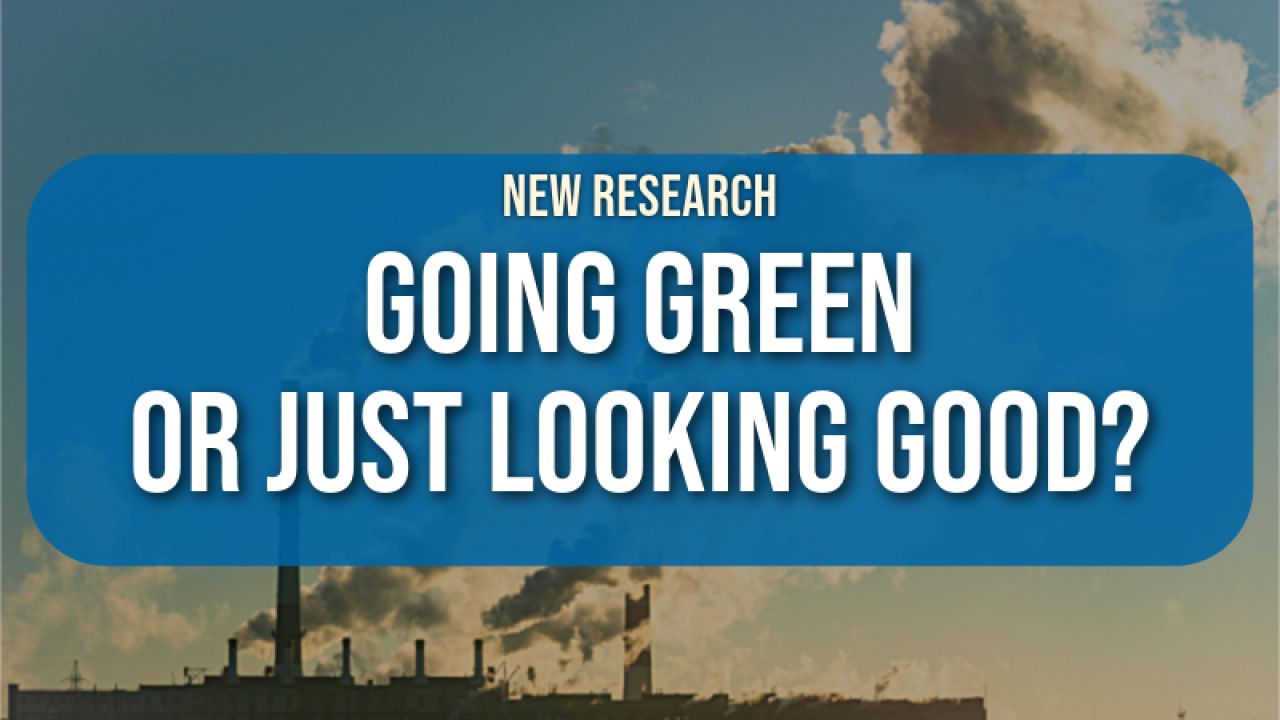February 11, 2025
Prosocial study explores how the public perceives corporate and government efforts to reduce carbon emissions

As businesses and governments race to combat climate change, a critical question arises: Are organizations focusing their efforts in the right areas? Our research explores how the public perceives corporate and government efforts to reduce carbon emissions — both within their own operations and beyond.
Major corporations like IKEA and Kellogg's have set ambitious goals, including a transition to 100 percent renewable energy and aiming to reduce emissions by up to 50 percent across their operations and supply chains by 2050. Many organizations are striving for net zero goals by implementing different key strategies. Some focus on internal actions — making their facilities greener, improving energy efficiency, and cutting direct emissions. Others look externally, investing in carbon credits, funding reforestation projects, or supporting community sustainability programs.
Across five online experiments, our findings show that people expect organizations to prioritize internal carbon reductions before investing in external efforts like purchasing carbon credits, which can otherwise appear insincere. A fascinating aspect of our study is the underlying mechanism—how moral licensing influences public perception. Moral licensing refers to the tendency of individuals or organizations to feel justified in making less responsible choices after taking an initial positive action.
The bottom line? Don’t do nothing.
Direct emissions cuts are viewed more favorably, with stronger public support and perceptions of morality compared to emissions trading, which is often seen as hypocritical. Public attitudes toward emissions trading are more critical in corporate settings than in governmental ones, where it is perceived with slightly less skepticism. However, across both contexts, direct cuts consistently receive higher endorsement and trust.
Our research highlights the importance of balancing internal sustainability efforts with external contributions to achieve net zero goals effectively. For practitioners, transparency un these efforts is essential—clearly communicating internal progress fosters credibility when discussing external initiatives. Carbon credits and other external sustainability projects should complement, not replace, direct operational changes. Engaging stakeholders early, whether employees, customers, or communities, helps build long-term trust and support.
Looking ahead, our next steps involve exploring how organizations can better integrate and communicate their sustainability strategies to various audiences. Future research will examine how different messaging strategies influence public perception. These insights will help organizations refine their approaches and achieve more meaningful sustainability outcomes.
The bottom line? Don’t do nothing.
For more information about this study, email Shupei Yuan at syuan@niu.edu or Chris Haoran Chu at chu.h@ufl.edu. This project was supported by a 2023 Page/Johnson Legacy Scholar Grant from the Arthur W. Page Center.
